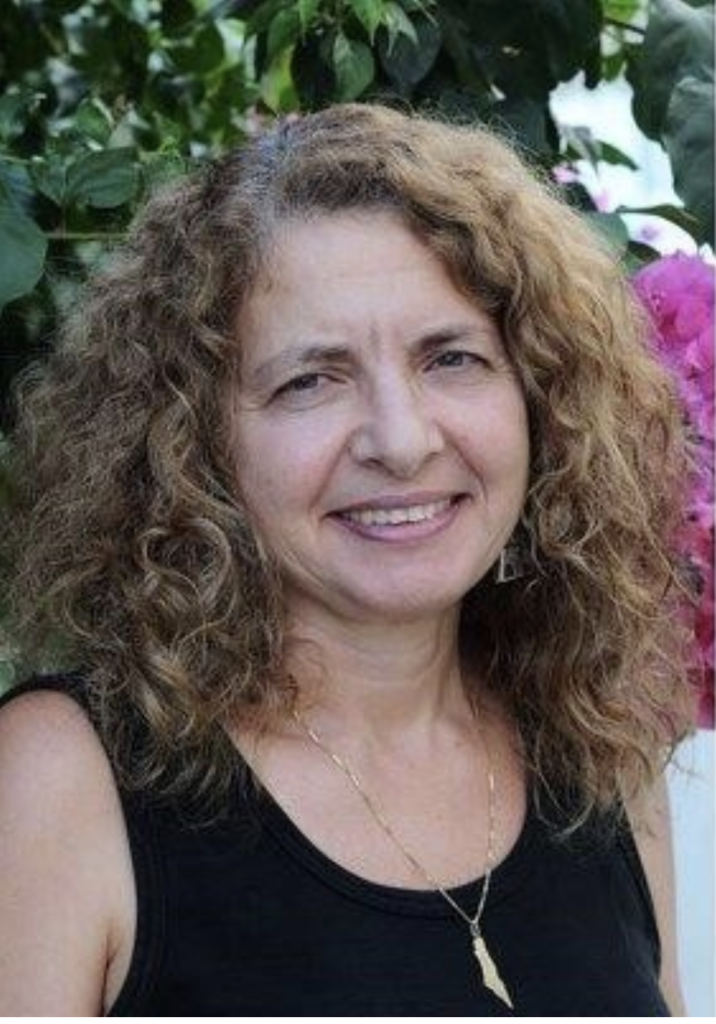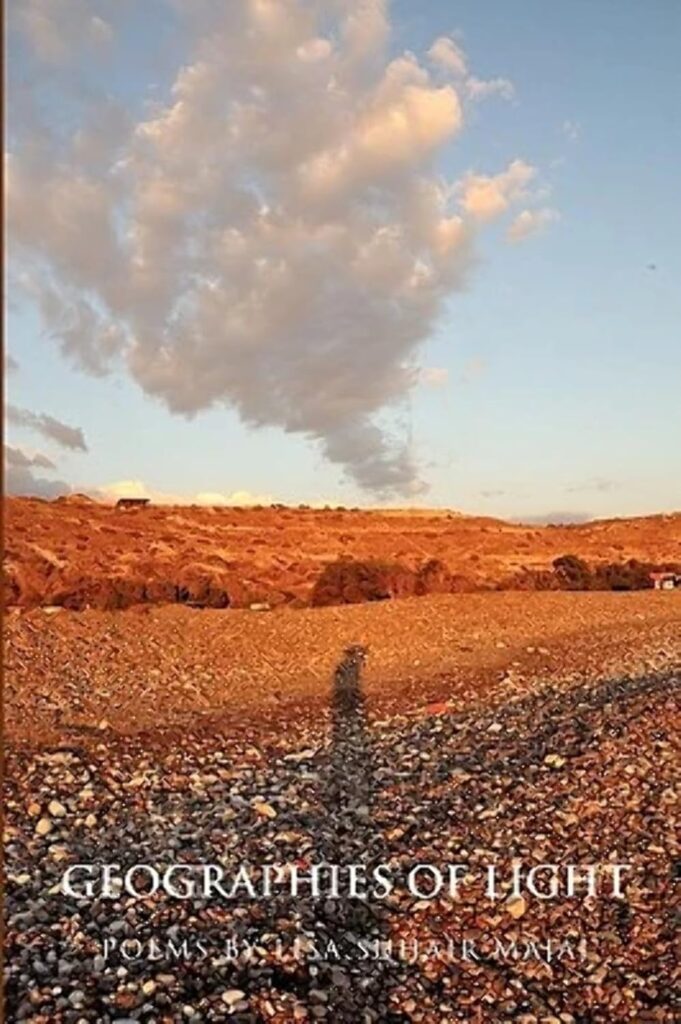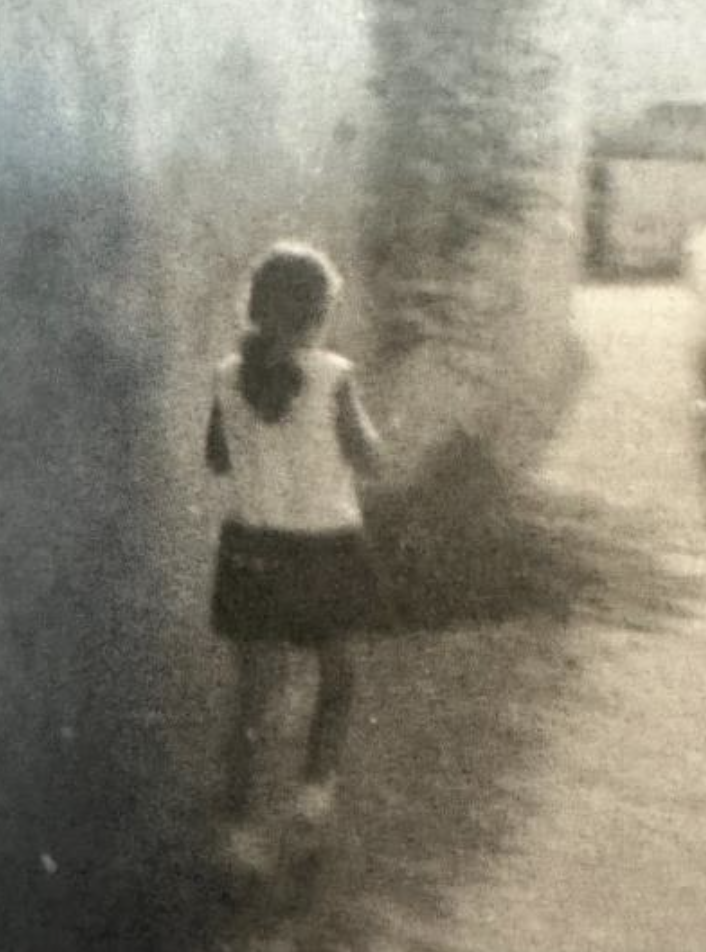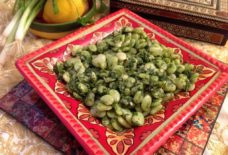Pathbreakers of Arab America—Lisa Suhair Majaj

By: John Mason / Arab America Contributing Writer
This is the sixty-fourth of Arab America’s series on American pathbreakers of Arab descent. The series includes personalities from entertainment, business, sports, science, arts, academia, journalism, and politics, among other areas. Our sixty-fourth pathbreaker is Lisa Suhair Majaj, a Palestinian American poet, writer, and scholar of Arab American Literature. She depicts Palestinians in times of peace and war, showing them in continuous periods of violence in Israel and Palestine. Majaj’s identity as a Palestinian American adds a deeply emotional aspect to her work. She avers, “In difficult times, poets and writers have always provided lifelines.”
Lisa Suhair Majaj, poet extraordinaire, humanizes Palestinians in times of peace and war
Lisa Suhair Majaj was born in 1960 in Hawarden, Iowa, and raised in Jordan. Majaj earned a B.A. in English literature from the American University of Beirut, an M.A. in English Literature, an M.A. in American Culture, and a PhD in American Culture from the University of Michigan. In 2001, she moved to Nicosia, Cyprus. She is the author of “Geographies of Light,” one of a series of poems and essays in multiple journals and anthologies published in the U.S., Europe, the Middle East, and India.
Majaj’s production includes two children’s books and she is the co-editor of three volumes of critical essays on Arab, Arab American, and other international women writers of color. These include “Going Global: The Transnational Reception of Third World Women Writers,” “Intersections: Gender, Nation, and Community in Arab Women’s Novels,” and “Etel Adnan: Critical Essays on the Arab American Writer and Artist.”
Beyond Majaj’s writings, her poems have been translated into several languages, including Arabic, Hebrew, Greek, Indonesian and Malayalam. Her poetry was included and displayed in the 2016 exhibition “Aftermath: The Fallout of War—America and the Middle East.” Her poetry has also been included in several textbooks and taught in high schools and colleges in the U.S., Jordan, Palestine, and elsewhere.
Speaking amid Arab-Israel violence in an early phase of the Gaza war, Majaj shares her poetry at Harvard
In late October 2023, Majaj shared a collection of her poems at the Center for Middle Eastern Studies. She read 17 of her poems chronicling her life as a Palestinian American, acknowledging the difficulty of the subject matter amidst the violence then unfolding in Israel and Palestine. “I have to say it feels almost impossible to be speaking right now with so much destruction and grief, and poetry feels especially difficult.” Majaj added, “Bertolt Brecht famously said, ‘What kind of times are these, when to talk about trees is almost a crime because it implies silence about so many horrors.’”
Majaj further suggested that her identity as a Palestinian American adds a deeply emotional aspect to her work. “To write as a Palestinian means to witness what is experienced and known, hidden or not hidden. It is to open oneself to tenderness and anguish, the deepest and most difficult human experiences.” Furthermore, Majaj shared with her Harvard audience, “Our history is embedded in human bodies and we have human lives, people we love, people we grieve. These events that Palestinians have suffered for the last 75 years are done by humans, to humans.”
According to the event’s proceedings, the poems spanned several “pressing themes, including family, fear, war, trauma, and extreme violence.” One poem, titled “What She Said,” described what a Palestinian mother might say to her children in an attempt to keep them alive while living under occupation — denying them a normal childhood: “She said / there’s no school today, / it’s a military invasion,” Majaj read.
Another poem she shared, titled “Conversation,” is formatted as a dialogue between two people. She referenced excuses given in defense of war while reminding readers of the innocence of many of the victims: “What did you do while the children of Gaza / were dying? I argued with their killers. / What did you say?” Majaj’s intent in writing poetry is to create a space that “somebody else can enter.” She said poetry is a unique medium that can reach people who would otherwise not interact with the region.

A brief selection of Majaj’s poignant poetry: Giving People Something to Hold Onto in the Midst of Despair
“The Electronic Intifada” provided a selection of Majaj’s poetry that illustrates the range and depth of her work. In “Geographies of Light,” she writes exquisitely of “the profound personal and collective loss that defines Palestinian history.” In the opening poem, “Reunion,” the dead appear in her kitchen, demanding attention (the / symbol = a verse ). She tells them to go away, but her mother tries to press a figurine into her hands, her father a T-shirt filled with earth from Palestine, “mumbling something about loss, / remembrance, Palestinian inheritance.” By the end, she is alone again, sipping bitter black coffee, the drink of funerals, “my mouth fills with dregs: / coarse, bittersweet, earth-dark, / dense as unclaimed memory.”
“Geographies of Light” includes how “the earth of Palestine fills her mouth, and she is compelled to remember, to speak, because not doing so is no longer an option.” Majaj’s words generate from this earth this tragic history that is inescapable, driving her to seek the understanding she has longed for since childhood. “I was the child in the doorway, watching / I was the child who saw her turn silently away / I was the child who understood nothing,” she writes of her mother in “Homemaking.”

In another of Majaj’s poems, “Kan ya ma kan” — she avers, “there was and there was not — a land called Falastine / where children played in the streets and in the fields and in the orchards / Kan ya ma kan. Keep your head down.” With some difficulty, she addresses her memories of the dead: “I Remember My Father’s Hands,” she titles one poem, listing all the reasons that culminate in: “because when I look at my hands / his own speak back.”
Majaj speaks poetically of the war in Lebanon, her flight from there, and her grandmother, “Bahiyeh was like all / the old ones, longing / for earth and the light / off al-Aqsa, olive trees / rooted on hills.” Bahiyeh wants to be buried in her childhood land, but her corpse is desecrated by Israeli soldiers who think it conceals contraband. “What light / remained in her bones / still beyond desecrating hands / shone hidden / and private. … Bahiyeh’s bones lie buried in girlhood / soil. You watch for / that steady emanation / of light. You learn / how to wait / after planting.”
In representing the Gaza war through a poetic lens, Majaj shows in “The Poem” the ravages of that war. This was published this year in “Vox Populi.” Too long to be presented here in its totality, several excerpts from different parts of the poem show its power and pain:
The poem was found in the rubble / of a six-story residential building / in Khan Yunis, destroyed by a 2000 / pound bomb that set fire to the sky / and death to the burning earth”
The poem was alive, but bloodied / beyond recognition, trapped / beneath heavy chunks of concrete / The blast had severed its legs and arms / The poem could not move / It could not reach out to rescuers / It could not find its wounds…
Later, in the hospital, the poem lay / on the bloodied ground, listening / to the screams of children undergoing / amputations without anesthetic, to the wails of mothers clutching / the bodies of babies to their chests, / refusing to allow them to be taken to the refrigerated ice cream trucks, / pleading that it was too cold there, that they could not leave them alone, that the children would be frightened…
Just then aid workers brought in / a wounded child, laying it / on the floor nearby. / The child was covered in blood, screaming / for its mother. The poem / lay there listening. Slowly / it mustered every bit of strength / it had, and began to hum. / It couldn’t get a voice out; / This was the best it could do…
And, then, the final verse,
Exhausted but determined, the poem / continued to hum. It was difficult, / but better than staying silent. / The poem / thought to itself that later on, when / it could manage, it would try to sing / a lullaby, something to comfort the children / whose light still shone in their bodies, who / would need some kind of music to survive.
It is difficult to separate Majaj’s “The Poem” from the actual war that continues unabated in the homeland of the Palestinians. Her poetry is simply divine, earthy, frightening, yet real beyond belief.
Sources:
“—“Lisa Suhair Majaj,” Wikipedia Series on Arab Americans, 2024
–“Writing as a Diasporan Palestinian: Poems and Reflections,” Lisa Suhair Majaj, Harvard Center for Middle East Studies, 10/24/2023
–“Amid Violence in the Middle East, Palestinian American Poet Shares at Harvard Center for Middle Eastern Studies,” Lisa Suhair Majaj, The Harvard Crimson, 10/25/2023
–“Words flower from fragile bodies: the poignant poetry of Lisa Suheir Majaj,” by Patricia Sarrafian Ward, The Electronic Intifada, 2/6/2012
–“Lisa Suhair Majaj: The Poem,” Vox Populi, 2024
John Mason, Ph.D., focuses on Arab culture, society, and history and is the author of LEFT-HANDED IN AN ISLAMIC WORLD: An Anthropologist’s Journey into the Middle East, New Academia Publishing, 2017. He has taught at the University of Libya, Benghazi, Rennselaer Polytechnic Institute in New York, and the American University in Cairo; John served with the United Nations in Tripoli, Libya, and consulted extensively on socioeconomic and political development for USAID and the World Bank in 65 countries.
The views and opinions expressed in this article are those of the author and do not necessarily reflect the position of Arab America. The reproduction of this article is permissible with proper credit to Arab America and the author.
Check out our Blog here!









